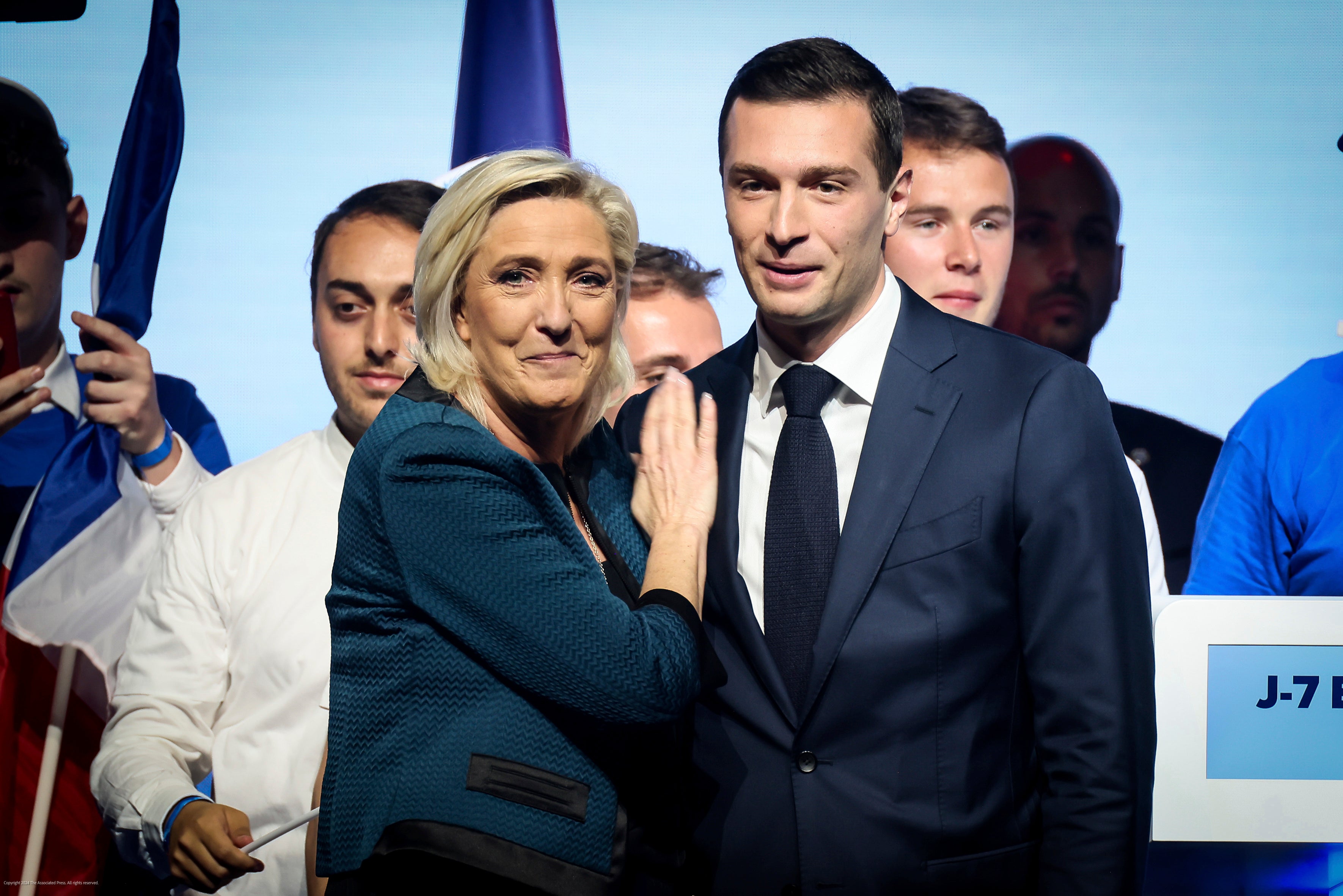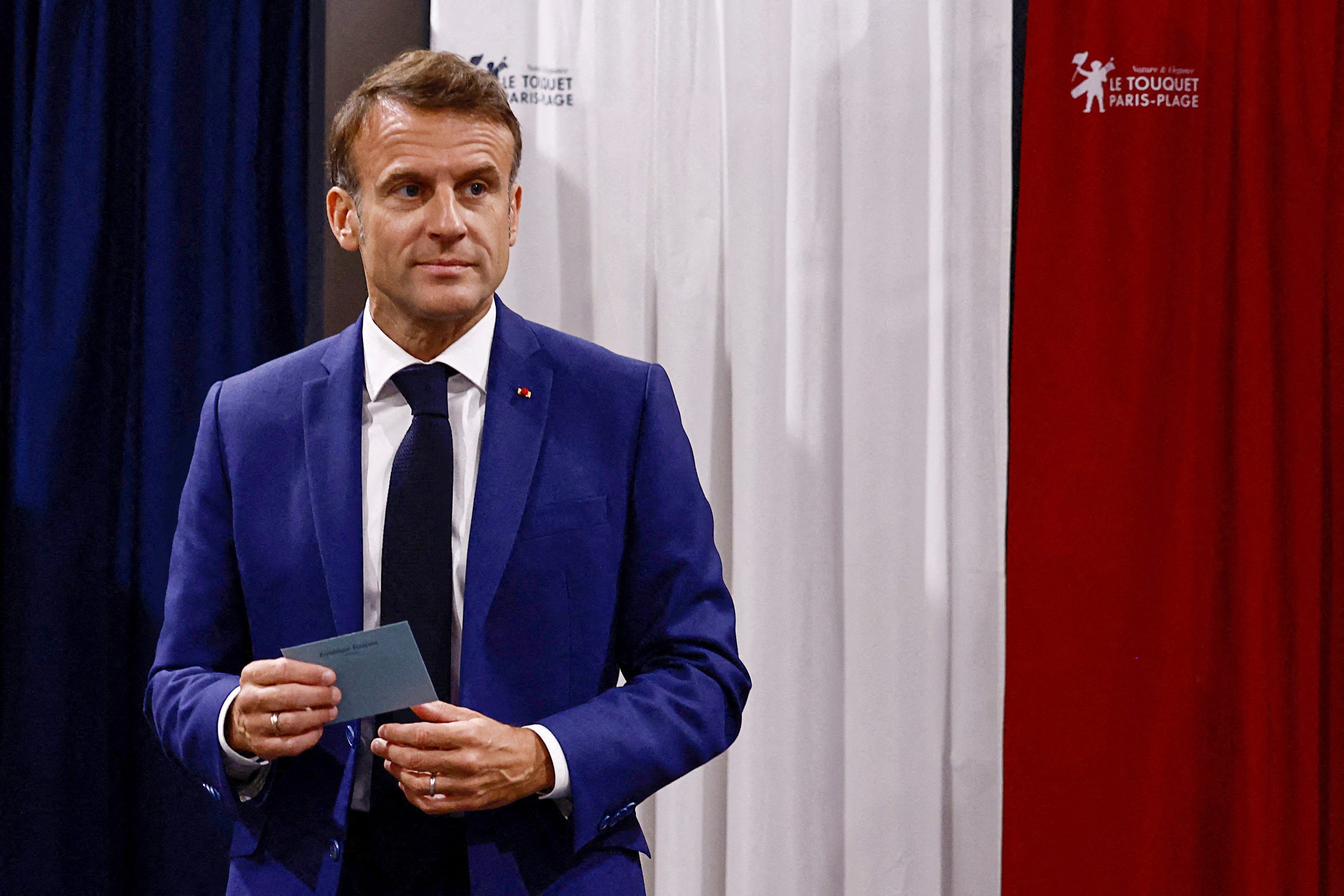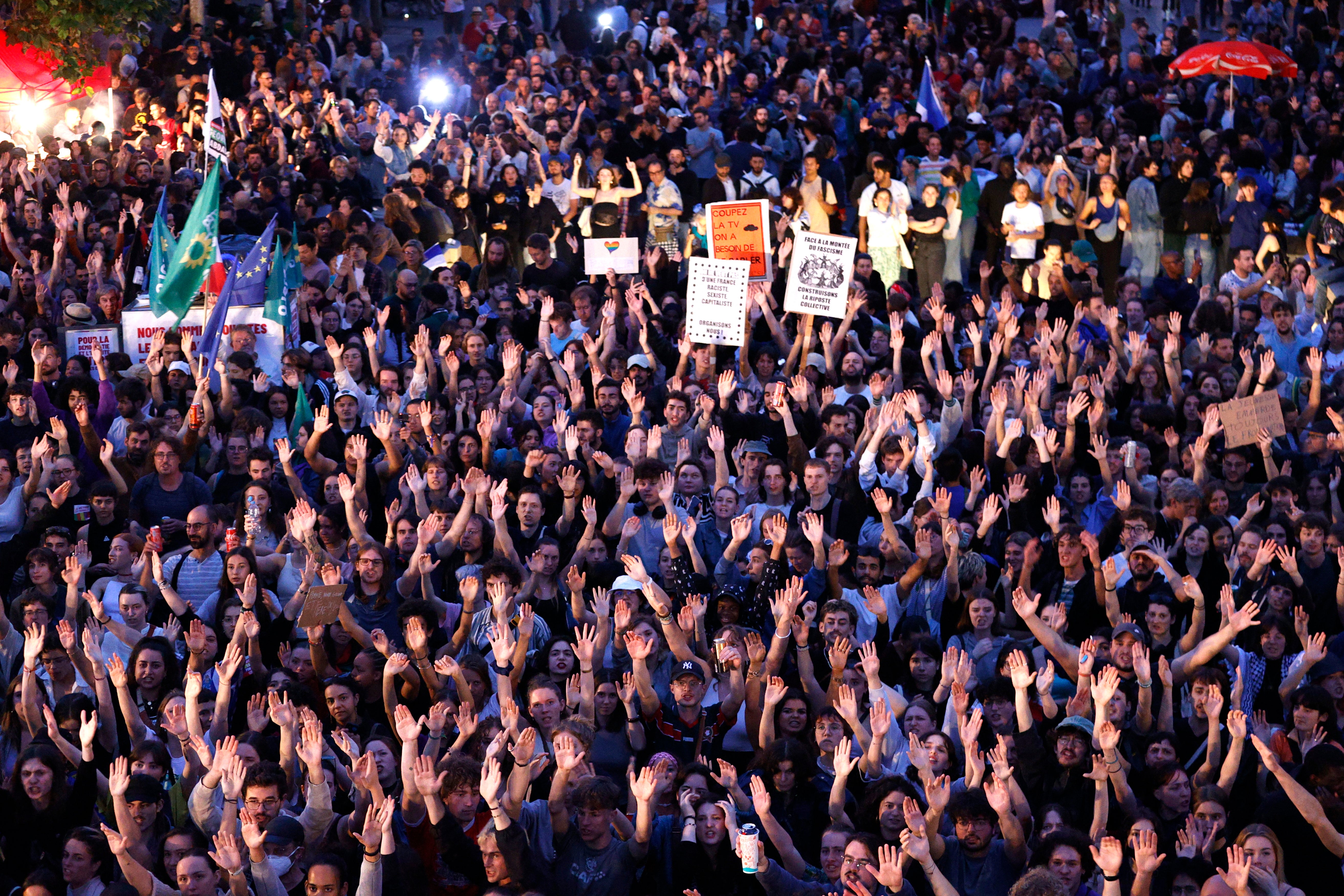Macron camp divided as far-right National Rally takes one step closer to power in Paris
Rival French parties scramble to build anti-far-right front amid political turmoil
Your support helps us to tell the story
From reproductive rights to climate change to Big Tech, The Independent is on the ground when the story is developing. Whether it's investigating the financials of Elon Musk's pro-Trump PAC or producing our latest documentary, 'The A Word', which shines a light on the American women fighting for reproductive rights, we know how important it is to parse out the facts from the messaging.
At such a critical moment in US history, we need reporters on the ground. Your donation allows us to keep sending journalists to speak to both sides of the story.
The Independent is trusted by Americans across the entire political spectrum. And unlike many other quality news outlets, we choose not to lock Americans out of our reporting and analysis with paywalls. We believe quality journalism should be available to everyone, paid for by those who can afford it.
Your support makes all the difference.French president Emmanual Macron’s allies are divided as they attempt to prevent a landslide victory by the far right.
Gabriel Attal, the prime minister under Mr Macron’s centrist coalition, urged party candidates to drop out of races where they were in third place behind left-wing party the New Popular Front (NFP) and Marine Le Pen’s National Rally (RN).
Meanwhile, finance minister Bruno Le Maire ruled out asking voters to choose a far-left candidate from the France Unbowed (LFI) party – a member of the NFP coalition.
Mr Macron has found himself caught in the crossfire as he proposed that voters rally behind a “broad alliance” of republican and democratic candidates for the second round in order to prevent a far-right victory.
The mixed signals from Mr Macron’s allies come as they attempt to stave off a resurgence of the far right, which made historic gains in the first round of France’s parliamentary election.
RN and its allies won 33 per cent of the vote, followed by a left-wing bloc with 28 per cent and Mr Macron’s centrists with just 20 per cent.
This was a huge setback for Mr Macron, who called the snap election after his party suffered a crushing defeat by Ms Le Pen’s party in the European parliament elections last month.

Mr Attal, the 35-year-old prime minister, urged for tactical voting amid the chaos. He said that “not one single vote” should go to RN. “The stakes are clear: to prevent the National Rally from having an absolute majority.”
The division ensued when Mr Le Maire branded the left-wing LFI party a “danger”. “For me, France Unbowed is a danger for the nation, just as the National Rally is a danger for the Republic,” he told France Inter radio.
Mr Le Maire added that, while he would encourage voters to pick candidates from other left-wing parties in seats where a centrist candidate had pulled out, he would “never” suggest that people vote for LFI.
But Marine Tondelier, a senior member of the Greens within the NFP alliance, told the same radio station minutes later that she was “absolutely floored” by Mr Le Maire’s stance, calling it “cowardly and privileged”.
LFI’s Eric Coquerel also accused Mr Macron’s centrists of playing into Ms Le Pen’s hands, saying: “All those who continue, in the former majority, to put a line of equality between the LFI and the RN affirm that, for them, giving the RN a majority isn’t a problem.”
Jean-Luc Melenchon, the leader of LFI, said the left-wing alliance would withdraw all its candidates who came third in the first round, adding: “Our guideline is simple and clear: not one more vote for the National Rally.”

Whether the anti-immigrant, eurosceptic RN can form a government will now depend on how successfully other parties manage to thwart Ms Le Pen by rallying round the best-placed rival candidates in hundreds of constituencies across France.
Mr Macron is due to plot electoral strategy with senior aides at a closed-door meeting at his Elysee Palace later on Monday, as similar tactics have previously worked in 2017 and 2022.
Ipsos analyst Mathieu Gallard calculated that the first round had created the potential for three-way contests in 306 of the 577 seats to be fought over in France’s National Assembly, underlining the scale of uncertainty that remains.
RN, which has long been a political pariah in France, is now closer to power than it has ever been.
Ms Le Pen has sought to clean up the image of a party known for racism and antisemitism – a ploy that has worked amid public anger towards Mr Macron, the high cost of living, and growing concerns over immigration.
The far-right party stands a good chance of winning a majority in the lower house of parliament for the first time, but the outcome remains uncertain given the complex voting system and the potential for tactical voting.

The main alternative scenario to an RN-led government would be a hung parliament, which could potentially make France ungovernable for the remainder of Mr Macron’s presidency, which is due to run until 2027.
Jordan Bardella, who could become prime minister if RN wins a majority, said he intends to work with Mr Macron and “to be a cohabitation prime minister who is respectful of the constitution and of the president of the Republic’s role, but uncompromising about the policies we will implement”.
He has also described the far left as an “existential threat” to France.
RN lawmakers, meanwhile, urged centre-right politicians in the Republicans party, which received less than 7 per cent of the first-round vote, to withdraw from districts where such a move would work in RN’s favour.
Dozens of candidates who won at least 50 per cent of Sunday’s vote were elected outright. All the other races head to a second round on 7 July involving two or three top candidates.

Join our commenting forum
Join thought-provoking conversations, follow other Independent readers and see their replies
Comments